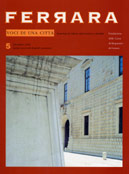In the agro-food sector there has already been a move to adopt new processes of transformation and conservation: milk with a low lactose content for the treatment of microbial lactase, flavourings prepared by micro-organisms at costs that are competitive compared to those of synthetic products; recombinant rennin whose technological characteristics are superior to those of curds of animal or microbial origin; transgenic rice with a low allergen content and transgenic rice better suited for the production of fermented beverages.
The university diploma is awarded following a course "whose END IS TO provide students WITH a correct understanding OF cultural AND scientific methods WITH a VIEW TO attaining the levels OF ability required by specific professional areas".
Consequently, the course constitutes a means of bridging the gap that today separates university studies and the practical requirements of the profession, thus responding to the demand from the workplace for qualified "young" technicians, whose university training involves only a three year course of study.
In the light of this explanation of the import of biotechnology and the diploma, it is easy to understand why the institution of such courses of study will take on a particular significance with regard to Ferrara's technological park insofar as, if a really professional level is to be achieved, this must be effected by means of agreements between the University and other institutions involved in research and professional training in the area, and in agreement with production companies and farms where final year students may undertake a practical apprenticeship.
The diploma in Biotechnologies and Industrial Agriculture is awarded at the end of a three-year course of study whose aim is to provide the student not only with the basic knowledge necessary to keep up with developments in the sector but also with a knowledge of the methods and techniques required for those working in applied sectors of industrial biotechnology such as the food production or pharmaceutical industries and applied sectors of vegetable biotechnologies such as crop production and the protection of crops against parasites.
The teaching method will be based on an innovative "integrated" concept. Practical activities, apprenticeship and seminars made up of groups of students co-ordinated by tutors who, for the basic disciplines will preferably be university researchers, while for the specialized professional disciplines tutors will preferably be lecturers from professional institutions or experts working in the production sectors of the various relevant branches of industrial agriculture.



